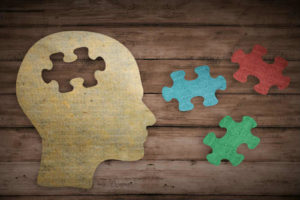











Sigmund Freud is best known as the father of psychoanalysis. Through psychoanalytic theory, Freud attempted to explain behavior while simultaneously mapping out a way to treat mental illness. The Oedipus complex is a central concept in Freud’s psychoanalytic theory. Freud believed that one’s personality and adult life were shaped and molded by important events from childhood. This was summarized in his theory of psychosexual development (Lantz & Ray, 2021).

This theory is arguably the most controversial part of Freud’s research. It asserts that one could become fixated in a particular stage and not become psychologically well until all stages are successfully completed. The Oedipus complex is a controversial concept in psychology, sparking debate about its validity and cultural implications.
In his oedipal theory, Freud alleged that infants are born with sexual impulses and search for gratification throughout several stages of development. The Oedipus complex refers to a child’s unconscious sexual desire for the opposite-sex parent and rivalry with the same-sex parent. In the third stage, the phallic stage, Freud contended that sexual impulses center around the erogenous areas of the child’s body and introduced the Oedipus complex.
Freud’s psychosexual stages highlight how erogenous zones and specific body parts, such as the genitals, become sources of pleasure and conflict during development. The origins of the Oedipus complex are rooted in the Greek myth of the mythological figure Oedipus, as depicted in Sophocles’ play Oedipus Rex, which inspired Freud’s concept. Freud claimed that unresolved conflicts during these stages could lead to fixation and influence sexual life and later psychological development. Children experience these psychosexual stages, and the Oedipus complex plays a significant role in shaping a child’s development. This concept has been accepted and rejected many times over the years by researchers (Psychoanalytic “Evidence”: A Critique Based on Freud’s Case of Little Hans, 1960). Before we explore where the current majority of experts stand, let’s first review the background of the Oedipus complex in a little more detail.
The Oedipus complex is a classical psychoanalytic theory that asserts that a child develops an unconscious desire for the parent of the opposite sex, often involving fantasies of sexual involvement, while feeling envy and jealousy towards the parent of the same sex. This is considered an example of an Oedipal conflict in psychoanalytic theory.
According to the theory, a young boy would begin to unconsciously lust after his mother, who becomes the love object for the child, seeking his mother’s affection, while becoming envious and resentful of his father, who receives his mother’s love and attention. The boy feels jealousy and rivalry toward his father, and these emotions often include hostile feelings as part of the emotional response. Freud contended that the complex, or true conflict, arises in the young boy’s feelings for his mother along with the competition that he feels towards his father.
The Oedipus complex explains that the young boy’s feelings of jealousy towards his father culminate in visions and dreams of eliminating his father and assuming his rightful role with his mother. It further explains that the young boy’s feelings of hostility develop into castration anxiety, an unfounded fear that his father will castrate him as punishment for lusting after his mother (Loewald, 2000).
Children view their parents through the lens of rivalry and desire during this stage, shaping their internal perspective on family dynamics. The theory also acknowledges that the Oedipus complex can occur in families with one parent or different family structures, where the other parent still plays a significant role in the child’s internal conflict. Additionally, the negative Oedipus complex is a variation where the child experiences desire for the same-sex parent and hostility toward the opposite-sex parent. Critics have noted that the theory does not fully account for same sex parents and modern family structures (Sugiyama, 2001).
Sigmund Freud proposed that the Oedipus complex emerges as a central part of a child’s psychosexual development during the phallic stage, which typically occurs between the ages of three and five. At this point in a child’s life, Freud believed that the libido becomes focused on the genitalia, and children begin to form unconscious attachments to their opposite sex parent. For boys, this means developing a deep, often unconscious affection for their mother, while viewing their father—the same sex parent—as a rival for her attention. Freud considered this internal conflict to be a universal phenomenon, experienced by all children as a natural part of growing up.
For girls, Freud’s former student Carl Jung introduced the term “Electra complex” to describe a similar process, where a girl feels desire for her father and sees her mother as a competitor. While Freud’s original theory focused primarily on boys, the Electra complex highlights the parallel experience for girls during the same stage of psychosexual development. According to Freud, the successful resolution of these feelings is crucial for healthy emotional and psychological growth, shaping the way children relate to both parents and later relationships in adult life.
The relationships children form with their parents are at the heart of the Oedipus complex and play a pivotal role in their psychosexual development. Freud believed that a child’s unconscious desire for the opposite sex parent and rivalry with the same sex parent are natural, if complex, aspects of early childhood. For example, a boy may crave his mother’s affection and attention, while feeling competitive or even hostile toward his father, whom he perceives as a barrier to that affection. Similarly, a girl may experience longing for her father and jealousy toward her mother.
These feelings, though largely unconscious, can influence a child’s behavior and emotional development in profound ways. Freud argued that how these early dynamics are managed within the family can shape a child’s sense of self, relationships, and even their future romantic attachments. If parents are aware of these developmental stages, they can foster a supportive environment that helps children navigate these feelings in a healthy way. Consulting a mental health professional can be beneficial for families seeking guidance on how to support their child’s development and maintain positive parental relationships during these formative years.
Castration anxiety is a key concept in Freud’s psychoanalytic theory, particularly in relation to the Oedipus complex in boys. Freud believed that as a boy becomes aware of anatomical differences between males and females, he develops an irrational fear that his father—the same sex parent—will punish him for his unconscious desire for his mother by castrating him (Taylor, 2016). This intense anxiety, though not based in reality, is a powerful motivator in the child’s mind and plays a crucial role in the resolution of the Oedipus complex.
According to Freud, castration anxiety compels the boy to repress his sexual desire for his mother and instead identify with his father, adopting his values and behaviors. This process is essential for the development of the superego and the internalization of social norms. In contrast, Freud described “penis envy” as a parallel experience for girls, where the realization of not having a penis leads to feelings of inadequacy and jealousy toward boys. While these ideas remain highly controversial and debated within psychoanalytic theory and modern psychology, they continue to be discussed as part of Freud’s broader exploration of psychosexual development and the complexities of early childhood.
Freud went on to explain that the young boy will attempt to cope with this anxiety by identifying with his father. The young boy will take on his father’s outlooks, traits, ethics, and morals. When the Oedipus complex is successfully resolved, the child internalizes the father’s values, leading to the peaceful integration of these feelings into healthy development.
This identification would include personality, behaviors, and perceived gender roles. During this time, the young boy’s father becomes a role model instead of a competitor. Freud stated that identification with the once competitor will result in the acquisition of their superego, or the internal moral authority that deals with morality and represses urges, along with male gender roles. At this point, the theory states that the young boy will learn to desire and lust after other women instead of his mother.
Freud used a case study of Little Hans, a five-year-old boy with a phobia of horses, as proof of the Oedipus complex. Freud contended that Han’s phobia of horses was representative of his fear of his father. Han’s fears that a horse would bite him were actually a fear that his father would castrate him for unconsciously lusting after his mother (Perelberg, 2005).
The way the Oedipus complex is resolved has significant effects on later development, influencing adult relationships and personality.
Does the case about Hans hold enough evidence to support the accuracy of the Oedipus complex? Many researchers say no. This is partially based on the claim that this was an isolated case study that could not be verified through research or experimentation on a larger population. In addition, further analysis showed that there was also abuse and trauma involved in the case of Little Hans, which was not initially considered in the study (Blum, 2007).
Most people believe that Freud exaggerated and focused too much on sexual jealousy, especially since he believed that the Oedipus complex was at the forefront of the sexual phase in early childhood. Despite this, several theorists went on to devise other stage and attachment theories that derived from Freud’s beliefs that relationships and childhood development had an important impact on future development. For example, attachment theory, developed by Bowlby and Ainsworth, offered a contrasting perspective by emphasizing the importance of emotional bonds and parent-child relationships rather than psychosexual conflicts (Bretherton, 1992).
Freud’s theory also addressed female sexuality through the concept of the Electra complex, suggesting that girls experience penis envy and develop their sense of female sexuality by identifying with their mothers. However, many critics argue that Freud’s theory failed to adequately explain female sexuality and has been widely challenged for its male-centric perspective (Cohler & Galatzer-Levy, 2008).
The ongoing debate continues as modern psychologists evaluate Freud’s theory in light of new research and alternative frameworks.
Sources